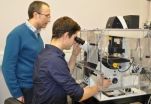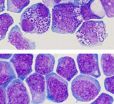(Press-News.org) Why is being happy, positive and satisfied with life the ultimate goal of so many people, while others steer clear of such feelings? It is often because of the lingering belief that happiness causes bad things to happen, says Mohsen Joshanloo and Dan Weijers of the Victoria University of Wellington in New Zealand. Their article, published in Springer's Journal of Happiness Studies, is the first to review the concept of aversion to happiness, and looks at why various cultures react differently to feelings of well-being and satisfaction.
"One of these cultural phenomena is that, for some individuals, happiness is not a supreme value," explain Joshanloo and Weijers in their review.
The researchers believe that being raised in a culture that does not value happiness could encourage a person to back away from it. However, an aversion to happiness exists in both Western and non-Western cultures, although happiness is more valued in the West.
In American culture, it is almost taken for granted that happiness is one of the most important values guiding people's lives. Western cultures are more driven by an urge to maximize happiness and minimize sadness. Failing to appear happy is often a cause for concern. Its value is echoed through Western positive psychology and research on subjective well-being.
In non-Western cultures, in contrast, it is a less valued emotion. The ideals of harmony and conformity are often at odds with the pursuit of personal happiness and the endorsement of individualistic values. For instance, studies have shown that East Asians are more inclined than Westerners to think that it is inappropriate to express happiness in many social situations. Similarly, Japanese are less inclined to savor positive emotions than Americans.
The review points out that many cultures shy away from happiness. These cultures hold the belief that especially extreme happiness leads to unhappiness and other negative consequences that outweigh the benefits of such positive feelings. In both Western and non-Western cultures, some people side-step happiness because they believe that being happy makes them a worse person and that others may see them as selfish, boring or shallow. People in non-Western cultures, such as Iran and neighboring countries, worry that their peers, an "evil eye" or some other supernatural deity might resent their happiness and that they will eventually suffer any number of severe consequences.
"Many individuals and cultures do tend to be averse to some forms of happiness, especially when taken to the extreme, for many different reasons," the researchers conclude. "Some of the beliefs about the negative consequences of happiness seem to be exaggerations, often spurred by superstition or timeless advice on how to enjoy a pleasant or prosperous life. However, considering the inevitable individual differences in regards to even dominant cultural trends, no culture can be expected to unanimously hold any of these beliefs."
INFORMATION:
Reference: Joshanloo, M. & Weijers, D. (2014). Aversion to Happiness Across Cultures: A Review of Where and Why People are Averse to Happiness. Journal of Happiness Studies, DOI 10.1007/s10902-013-9489-9
The full-text article is available to journalists on request.
What's so bad about feeling happy?
Study sheds light on how cultures differ in their happiness
2014-03-18
ELSE PRESS RELEASES FROM THIS DATE:
Study fingers chickens, quail, in spread of H7N9 influenza virus
2014-03-18
Among the copious species of poultry in China, quail and chickens are the likely sources of infection of H7N9 influenza virus to humans, according to a paper published ahead of print in the Journal of Virology.
"Knowing the likely poultry species lets us target our interventions better to prevent human infections," says corresponding author David Suarez, of the United States Department of Agriculture.
The H7N9 avian influenza virus was first reported in humans in March 2013 in China. Since then over 375 human cases have been confirmed and over 100 have died. Only ...
New understanding of why chromosome errors are high in women's eggs
2014-03-18
A new study from the University of Southampton has provided scientists with a better understanding of why chromosome errors are high in women's eggs.
It is estimated that up to 60 per cent of eggs are affected by errors in how their chromosomes divide, making it the leading cause of infertility. Chromosome errors also lead to conditions such as Down Syndrome and early pregnancy loss.
By using state-of-the-art imaging techniques, the Southampton researchers examined the most important process present in all cells to prevent chromosome errors – the Spindle Assembly Checkpoint ...
Some truth to the 'potent pot myth'
2014-03-18
New research from The Netherlands shows that people who smoke high-potency cannabis end up getting higher doses of the active ingredient (THC). Although they reduce the amount they puff and inhale to compensate for the higher strength, they still take in more THC than smokers of lower potency cannabis.
For the past decade or more, the common sense idea that high strength cannabis leads to higher doses of THC and therefore poses a greater risk of unwanted effects such as dependency has been challenged and labelled the 'potent pot myth'. It has been argued that smokers ...
A new algorithm improves the efficiency of small wind turbines
2014-03-18
Small wind turbines tend to be located in areas where wind conditions are more unfavourable. "The control systems of current wind turbines are not adaptative; in other words, the algorithms lack the capacity to adapt to new situations," explained Iñigo Kortabarria, one of the researchers in the UPV/EHU'sAPERT research group. That is why "the aim of the research was to develop a new algorithm capable of adapting to new conditions or to the changes that may take place in the wind turbine," added Kortabarria. That way, the researchers have managed to increase the efficiency ...
Simulations predict blast scenarios, have crossover animation appeal in Disney's 'Frozen'
2014-03-18
COLUMBIA, Mo. – Simulation-based engineering science (SBES) allows researchers to predict the effects of building explosions and analyze the response of building materials to those threats. Using a $400,000, five-year CAREER grant from the National Science Foundation, researchers at the University of Missouri developed the Material Point Method (MPM) a computer-generated tool that not only creates blast scenarios that informs blast and impact resistant materials and design, but also is crossing over into Hollywood animation—most recently, Disney's Oscar-winning animated ...
Exposure to snuff smoke in non-smokers fell by 90 percent after the tobacco control laws
2014-03-18
Researchers of the Tobaco Control Unit of the Catalan Institute of Oncology (ICO) and the Bellvitge Biomedical Research Institute (IDIBELL) evaluated exposure to snuff smoke in nonsmokers before the entry into force of the first Spanish smoking ban and after the launch of the second law (2011 ) in the city of Barcelona.
Salivary cotinine
Cotinine is a nicotine derived substance that is used as a marker of exposure to snuff smoke in nonsmokers. Researchers at the ICO- IDIBELL measured the concentration of this substance in the saliva of those surveyed and found to have ...
In IBS, non-GI issues are more powerful than symptoms in patients' health perceptions
2014-03-18
BUFFALO, N.Y. – Social relationships, fatigue and other coexisting medical problems have a stronger effect on how patients with irritable bowel syndrome (IBS) rate their overall health than the severity of their gastrointestinal symptoms, a University at Buffalo study has found.
"Our findings suggest that in IBS patients and possibly patients with other diseases as well, health perceptions depend to a much larger extent on non-biomedical factors than those of us who are health care providers have ever suspected," says lead author Jeffrey Lackner, PsyD, associate professor ...
Sorption energy storage and conversion for cooling and heating
2014-03-18
In many industrialized countries, city skylines are dominated by imposing glass façades and skyscrapers made of concrete and steel. There is a drawback to these magnificent structures, though – they often get very hot in the summer, so they mostly need elaborate and costly air conditioning systems. And these already account for some 14 percent of Germany's annual energy consumption. Experts reckon that total cooling requirements in buildings will triple by 2020.
Cooling and heating using metal organic frameworks
Thermally driven cooling systems are one possible alternative ...
What factors contribute to sexual assault in the military and what can be done to prevent it?
2014-03-18
New Rochelle, NY, March 18, 2014–Recent high-profile cases have drawn attention to the problem of sexual assault in the U.S. military, the effects on survivors, and the actions and response of military leadership. Issues such as why there is more sexual assault in the military than in the general population, why it is under-reported, and what preventive approaches should the military adopt are explored in a provocative Roundtable Discussion published in the preview issue of Violence and Gender, a new peer-reviewed journal from Mary Ann Liebert, Inc., publishers. The article ...
Major breakthrough in developing new cancer drugs: Capturing leukemic stem cells
2014-03-18
This news release is available in French.
The Institute for Research in Immunology and Cancer (IRIC) at the Université de Montréal (UdeM), in collaboration with the Maisonneuve-Rosemont Hospital's Quebec Leukemia Cell Bank, recently achieved a significant breakthrough thanks to the laboratory growth of leukemic stem cells, which will speed up the development of new cancer drugs.
In a recent study published in Nature Methods, the scientists involved describe how they succeeded in identifying two new chemical compounds that allow to maintain leukemic stem cells ...
LAST 30 PRESS RELEASES:
A Pitt-Johnstown professor found syntax in the warbling duets of wild parrots
Cleaner solar manufacturing could cut global emissions by eight billion tonnes
Safety and efficacy of stereoelectroencephalography-guided resection and responsive neurostimulation in drug-resistant temporal lobe epilepsy
Assessing safety and gender-based variations in cardiac pacemakers and related devices
New study reveals how a key receptor tells apart two nearly identical drug molecules
Parkinson’s disease triggers a hidden shift in how the body produces energy
Eleven genetic variants affect gut microbiome
Study creates most precise map yet of agricultural emissions, charts path to reduce hotspots
When heat flows like water
Study confirms Arctic peatlands are expanding
KRICT develops microfluidic chip for one-step detection of PFAs and other pollutants
How much can an autonomous robotic arm feel like part of the body
Cell and gene therapy across 35 years
Rapid microwave method creates high performance carbon material for carbon dioxide capture
New fluorescent strategy could unlock the hidden life cycle of microplastics inside living organisms
HKUST develops novel calcium-ion battery technology enhancing energy storage efficiency and sustainability
High-risk pregnancy specialists present research on AI models that could predict pregnancy complications
Academic pressure linked to increased risk of depression risk in teens
Beyond the Fitbit: Why your next health tracker might be a button on your shirt
UCSB scientists bottle the sun with liquid battery
Lung cancer drug offers a surprising new treatment against ovarian cancer
When consent meets reality: How young men navigate intimacy
Siemens Healthineers and Mayo Clinic expand strategic collaboration to enhance patient care through advanced technology
Physicists develop new protocol for building photonic graph states
OHSU-led research initiative examines supervised psilocybin
New review identifies pathways for managing PFAS waste in semiconductor manufacturing
New research finds state-level abortion restrictions associated with increased maternal deaths
New study assesses potential dust control options for Great Salt Lake
Science policy education should start on campus
Look again! Those wrinkly rocks may actually be a fossilized microbial community
[Press-News.org] What's so bad about feeling happy?Study sheds light on how cultures differ in their happiness






